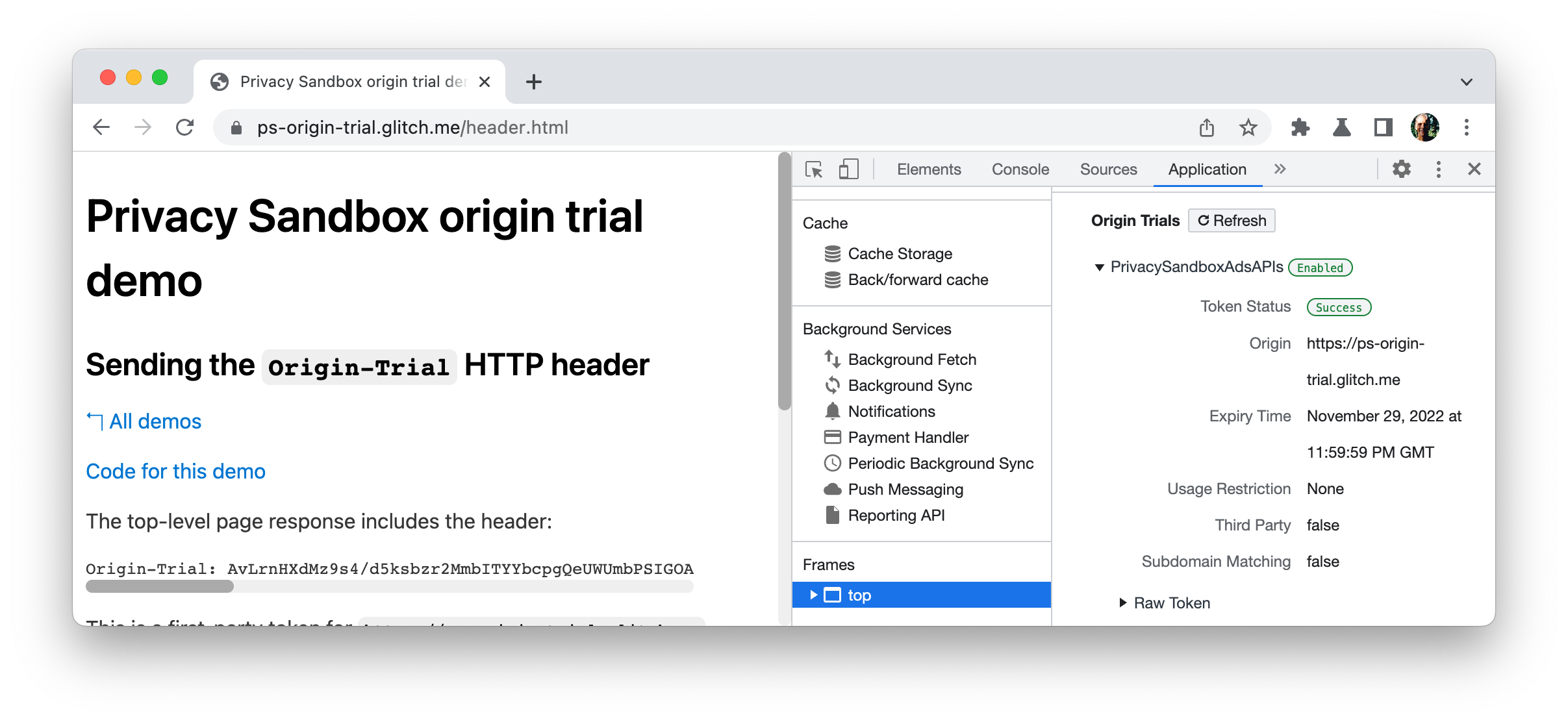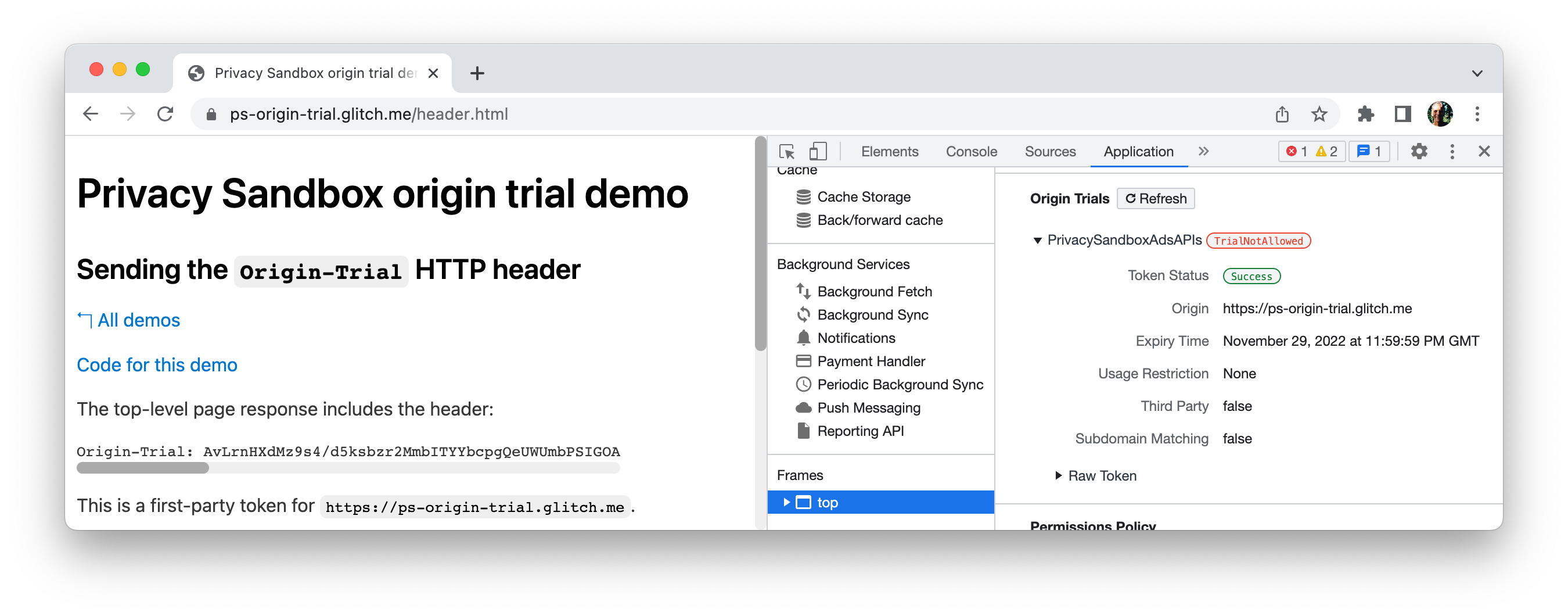Replies: 6 comments 4 replies
-
|
Hi, thank you for the report, we understand the issue. |
Beta Was this translation helpful? Give feedback.
-
|
Hi @lbdvt ! Apologies for the delay in responding. You can run Chrome with the PrivacySandboxAdsAPIsOverride flag to enable the features supported by the Privacy Sandbox Relevance and Measurement origin trial. For origin trial participation, take a look at our origin trial checklist for troubleshooting tokens and trial activation. |
Beta Was this translation helpful? Give feedback.
-
|
Setting chrome://flags#privacy-sandbox-ads-apis enabled will give you the same experience as having a valid origin trial token provided and being included in the experiment group for the trial. (In other words, there's no need to force inclusion in the group.) For example, opening https://ps-origin-trial.glitch.me/no-ot-token.html with the flag enabled should show all the APIs as enabled. You can check in DevTools to validate if a trial token is valid (even if your browser is not part of the experiment group). Are you seeing a difference between running with the flag enabled and being part of the origin trial? |
Beta Was this translation helpful? Give feedback.
-
|
Hi, Thanks for the reply, but I don't think it answers our use case.
Yes, if I'm not mistaken:
Our use case is "testing that we provide the token in the right way". Indeed while token set-up is most of the time straightforward, it can get complex in case of multiple domains involved, javascript dependencies, etc. So what we would need is a flag forcing the browser instance in the experiment group for the trial while still requiring a token to activate the APIs. |
Beta Was this translation helpful? Give feedback.
-
Got it — thanks for the additional explanation. Since you would need to use a flag for the testing you describe (i.e. this would be testing with individual users, not testing at scale) could you not just get the user to check DevTools for "testing that we provide the token in the right way" (as described here). Valid token, browser (Chrome Beta, for me) is in the experimental group: Valid token, browser (Chrome Stable, for me) is not in the experimental group: In theory, you could use |
Beta Was this translation helpful? Give feedback.
-
|
Sorry for the late reply, and thanks for the answer. What we'd like to be able to test is the following setup ("As a tester of the Privacy Sandbox API, I need on my local machine a Chrome browser that is part of the OT, in order to test the integration I've done for the OT, including token validation. How can I do that?"):
From what I understand:
But it would really be helpful to be able to test all in one go, to debug some integration cases (e.g. "providing a valid token but after calling the PS API"). |
Beta Was this translation helpful? Give feedback.


Uh oh!
There was an error while loading. Please reload this page.
-
Hi,
There seems to be a difference between (a) having a Chrome instance part of the OT and (b) running a Chrome instance with flag enabling features in the OT, namely in the fact that in (a) access to the Privacy Sandbox APIs is gated to having OT tokens properly set, whereas in (b) it is not.
It leads to test cases working fine in test environments (using start-up flags), but failing in live traffic, due to incorrect token set-up. While token set-up is most of the time straightforward, it can get complex in case of multiple domains involved, javascript dependencies, etc.
For testing and debugging purposes, it would be nice to be able to declare a Chrome browser instance as part of the OT (through specific start-up flags for instance), which would then behave as any other OT Chrome browser (i.e. require valid tokens for feature activation).
Beta Was this translation helpful? Give feedback.
All reactions